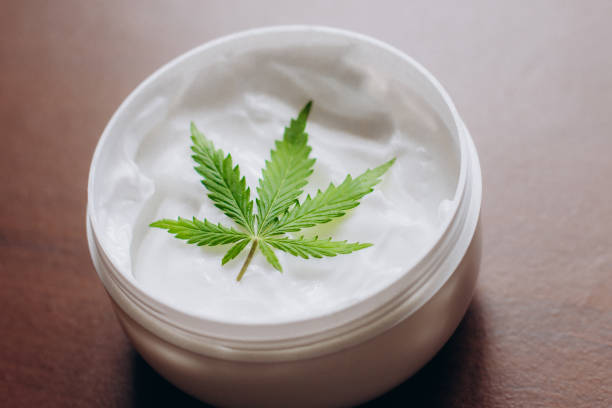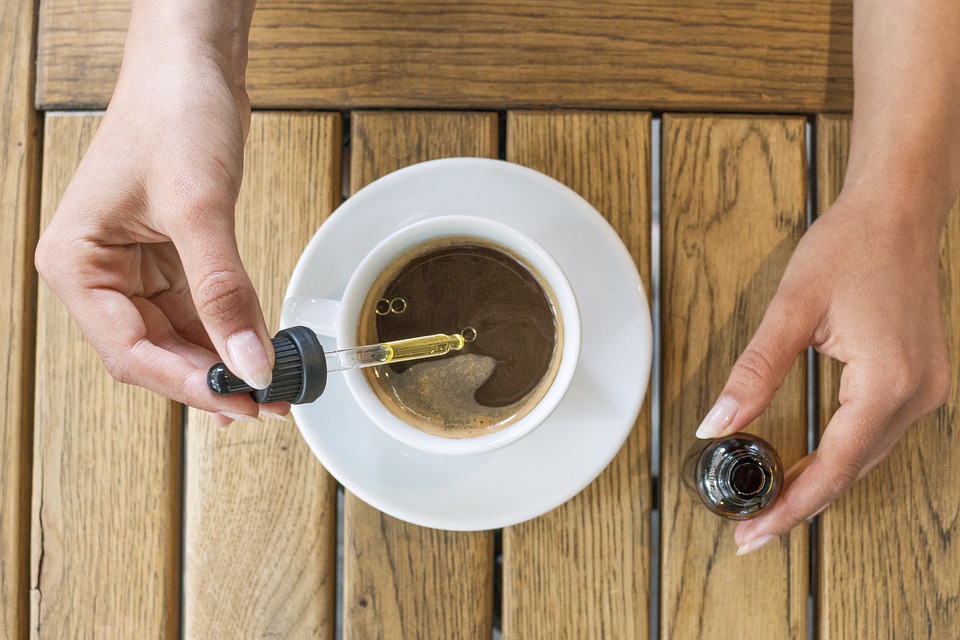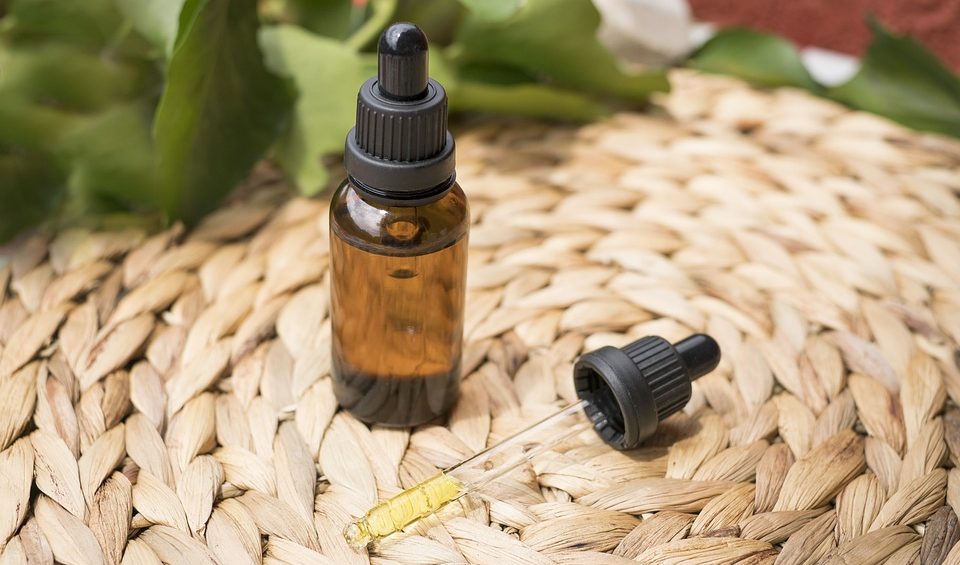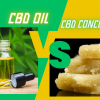Cannabis oil is being used more often to provide relief for a variety of medical issues. There are two primary ways to use cannabis oil: as a topical or a tincture. While both methods have their own unique benefits, there are some important distinctions between them that you should know before choosing one.
In this article, we will discuss the differences between cannabis topicals and tinctures. We will look at their composition, texture, and uses, and we will dispel some of the misconceptions about cannabis oil. By the end of this article, you will have a better understanding of which method of cannabis oil is right for you.
What are Cannabis Topicals?

Any medication that is intended to be applied topically to the skin is referred to as a topical, and this category includes lotions, salves, oils, sprays, and even transdermal patches. There are no additional common ingredients, though topicals sold in provisioning centres will contain cannabis. It is true that the majority of salves and balms contain beeswax or coconut oil, but the decision to do so is entirely up to the company making the product. Finding out what components are used in a topical and how they will impact you is always a smart idea. Topical manufacturers frequently add beneficial essential oils like lavender or tea tree oil, although this is still at the producer’s choice.There is no one ideal method for creating a topical.
Knowing the cannabinoid level of any cannabis topical you are thinking about using is also a smart idea. The quantity of THC, CBD, or other cannabinoids, as well as the types of cannabis strains used and how much is used per batch, will vary from one producer to the next, much like the various constituents in a topical itself. You’ll have a better grasp of the real medication incorporated in the ointment based on the product’s lab test findings. When exploring new cannabis products, we advise asking your provider to show you their most current test results. How much is to be used depends on the dose and consistency of the topical, but generally speaking, a thin layer applied to the affected area is sufficient. Never put a topical medicine near your lips, eyes, or an open wound.
What are Cannabis Tinctures?

Cannabis tinctures are cannabis-infused liquids that are used to administer cannabinoids. Tinctures are made by soaking cannabis in alcohol, often vodka, then straining the plant material. The liquid can be ingested directly or added to food or drinks.
Tinctures are a popular way to consume cannabis because they are easy to use and produce a fast and powerful high. They are also considered to be more potent than other forms of cannabis, such as edibles. Tinctures are available in a variety of strengths and flavours, making them a versatile product.
Cannabis tinctures are a great choice for people who want to avoid smoking or vaping. They are also a good option for people who want a fast and powerful high. Tinctures are available in a variety of strengths and flavours, making them a versatile product.
Difference between Cannabis Topicals and Tinctures
There are many differences between topical and tincture, in their composition, texture and uses. All in all, they are each unique in their own ways.
Topical preparations are designed to stay on the surface of the skin and enter through the hair follicles or pores. They are usually made of oil, but can also be made of wax, alcohol, or a combination of both. Tinctures, on the other hand, are designed to be absorbed into the bloodstream and are usually made of alcohol or a combination of alcohol and water.
Texture is another difference between topical and tincture. Topicals are either oily or waxy, while tinctures are either alcoholic or watery. Oily topicals are best for dry skin, while waxy topicals are better for oily skin. Alcoholic tinctures are better for absorption, while watery tinctures are better for hydration.
Finally, the uses of topical and tincture are different. Topicals are used for localised problems, such as acne, psoriasis, or eczema, while tinctures are used for systemic problems, such as pain, anxiety, or depression.
- Tinctures can be taken sublingually or orally.
- Topicals are intended for skin application.
- Any tinctures that include THC will have psychoactive effects.
- Because THC cannot travel through the skin, topicals typically don’t have any psychoactive effects (the only exception to this being a patch).
It’s vital to remember that you can get cannabis oil topicals and tinctures. One (tinctures) is intended to be consumed, while the other is not (topicals). When buying a product, always read the label to make sure it’s the proper one for your intended consumption technique.
Most Common Misconceptions About Cannabis Topicals And Tinctures
Here we have compiled a list of the top myths going around in regards to Cannabis topicals and tinctures!
Myth 1 – CBD is illegal
Simply told, CBD is not prohibited. To give some context, the Cannabis plant, usually referred to as cannabis sativa, produces approximately 140 distinct chemical compounds (called cannabinoids). However, just two substances—cannabidiol (CBD) and tetrahydrocannabinol—are presently regarded as the main active components (THC). These acronyms are frequently confused, which has led to the false impression that CBD is prohibited.
Myth 2 – CBD gets you high
Since CBD is not a psychoactive substance, as stated in Myth 1, it cannot make you feel “high.” People who have smoked cannabis may claim. Although THC gives you the high, CBD provides you the “body high,” and many users do experience a “uplifting” effect on their bodies.
The truth is that one of CBD’s effects is on serotonin receptors in your brain, which is why so many people praise it for its ability to treat anxiety and sadness. Serotonin levels are typically associated with mood and potential mental illness, and while this is still an active research topic, numerous animal studies have demonstrated conclusive proof of CBD’s stress-relieving properties, most likely as a result of its effects on serotonin-receptors. Although additional research is clearly required, this is most likely the cause of the “uplifting” feeling one experiences after taking CBD.
Myth 3 – CBD good, THC bad
Due to its illegality, it may be tempting to completely ignore THC, yet this would be oversimplified. The MS spasticity-relieving medicine Sativex and the cannabis oil that Canadian and Dutch doctors recommended to Billy Caldwell and Alfie Dingley, respectively, were among the few goods over the 0.2% THC limit that the UK previously deemed illegal. It has also been established that THC can ease the nausea and decreased appetite brought on by chemotherapy. To this end, the NHS now offers Nabilone, a synthetic non-psychoactive THC capsule form. Nabilone is only given by a doctor when other therapies have failed or are inappropriate, it should be mentioned.
Myth 4 – You will notice the effects of CBD immediately
The time it takes for a CBD product to enter your system depends on the individual and the manner of consumption, just like it does with most tablets, supplements, and oils. Symtomax has created a new oral tab that can deliver either an immediate dose of cannabinoids or a delayed release over a period of many hours.
Myth 5 – CBD is the ultimate ‘cure’
There is little doubt that academic institutions like The National Academies of Sciences, Engineering, and Medicine continue to publish studies that emphasise the potential advantages of CBD use. But it’s crucial to keep in mind that there isn’t enough proof in the UK to show that it can be applied as a medicinal remedy. It is offered as a dietary supplement as a result. While many users of the supplement laud its advantages, it’s vital to keep in mind that, at least without more proof, CBD products cannot “cure” illnesses.

FunFacts About Cannabis Topicals and Tinctures
There are a number of fun facts about cannabis topicals and tincture. Here are a few of the most interesting ones:
1. Cannabis topicals and tinctures are some of the oldest forms of cannabis medicine. They have been used for centuries to treat a variety of medical conditions.
2. Cannabis topicals and tinctures are non-intoxicating. This means that they do not cause a person to get high when they use them.
3. Cannabis topicals and tinctures are effective for treating a variety of medical conditions. Some of the conditions they are effective for include chronic pain, arthritis, and anxiety.
4. Cannabis topicals and tinctures are safe to use. They do not cause any adverse side effects, and are non-addictive.
5. Cannabis topicals and tinctures are easy to use. They can be applied directly to the skin or taken orally.
6. Cannabis topicals and tinctures are some of the most popular forms of cannabis.
7. Cannabis topicals are used to treat a variety of conditions, including chronic pain, inflammation, and skin conditions
8. Tinctures are liquid extracts of cannabis that are taken orally.
9. Tinctures are a popular way to administer cannabis because they are fast-acting and easy to use.
10. Tinctures can be made with a variety of cannabis strains, making them a versatile choice for patients.
Conclusion
In conclusion, cannabis topicals and tinctures offer a world of possibilities for those looking to harness the potential of this versatile plant. Whether you’re seeking relief from pain, inflammation, or simply want to relax and unwind, there’s a product out there that can help. From creams and lotions to drops and sprays, the range of options available means that you can find a delivery method that suits your needs and preferences.
But perhaps most importantly, cannabis topicals and tinctures represent a shift in the way we approach health and wellness. By embracing the benefits of plant medicine, we’re moving away from reliance on synthetic drugs and towards a more holistic, natural approach. And with ongoing research and innovation in the field of cannabis, the potential benefits of these products are only just beginning to be explored.
So, whether you’re a seasoned cannabis user or just starting to explore the world of plant medicine, be sure to give topicals and tinctures a try. Who knows – you may just find your new favorite way to relax, unwind, and support your overall health and wellbeing.



